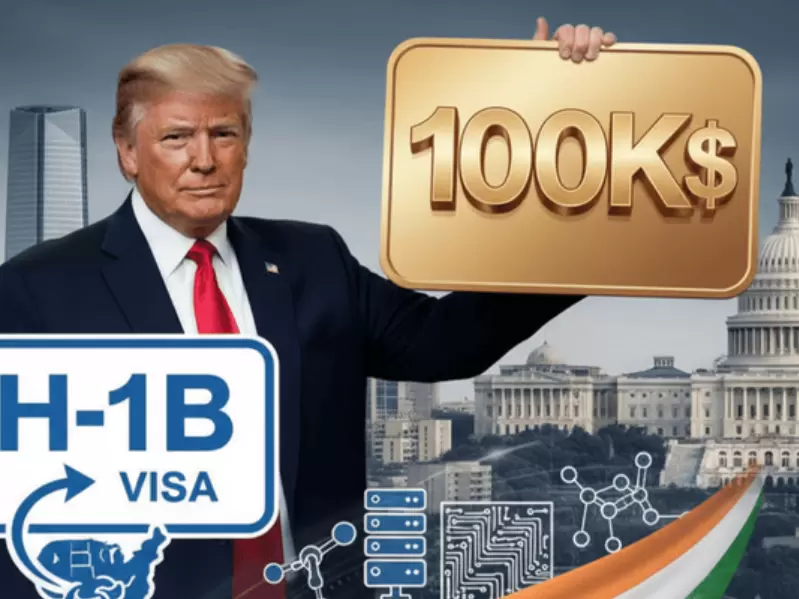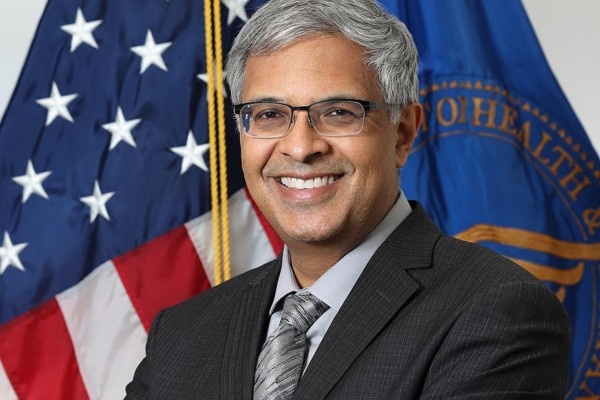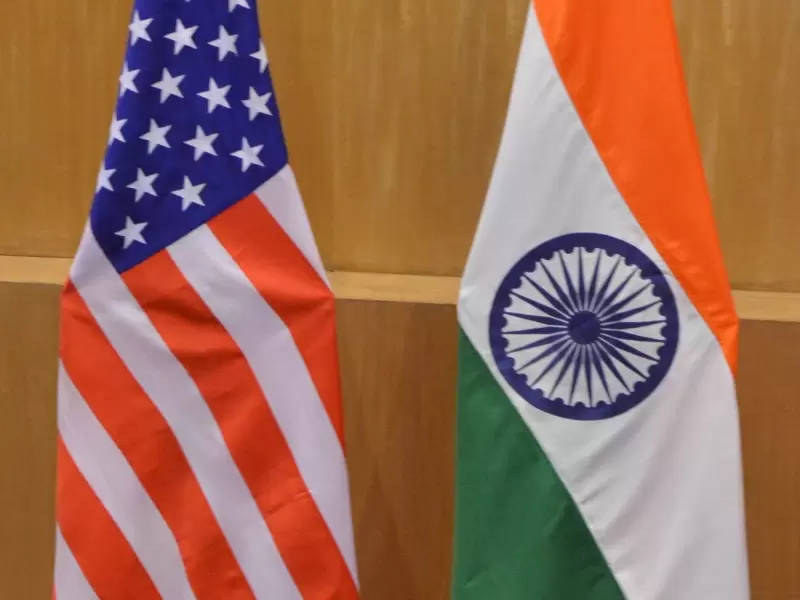Trump’s $100K H-1B fee: Disruption to American tech industry & dream
Supporters claim the fee protects U.S. jobs and funds enforcement, projecting $5.5 billion in annual revenue from tech-related petitions. But the argument doesn’t hold up.
 Representative Image / AI generated using Perplexity
Representative Image / AI generated using Perplexity
On September 19, 2025, President Donald J. Trump signed a proclamation slapping a $100,000 fee on every new H-1B visa petition—a move that blindsided tech companies, H-1B workers, and students like me.
Starting at 12:01 a.m. EDT on September 21, this “talent tariff” forces U.S. employers to pay a massive upfront cost to hire skilled foreign workers. As an Indian-American technologist and policy strategist, I see this as a direct hit on the American dream of thousands of Indian professionals, who make up roughly 70 percent of all H-1B holders.
Chaos and Confusion
The rollout was chaotic and unsettling, with a proclamation so vague it left even experts unsure who was covered and who was exempt. Big tech firms immediately sent urgent memos urging H-1B employees abroad to rush back before the deadline, while students and employees scrambled to change travel plans, at exorbitant prices. This chaos and panic forced the White House to clarify the next day that it was not applicable to existing H1b holders who should not panic to return. They also clarified that this was a one-time fee for new petitions only, but the early misinformation had already triggered widespread anxiety.
Crushing Costs for Tech and Startups
For Silicon Valley, the math is brutal. A company hiring 1,000 new H-1B employees would face an extra $100 million bill. Giants like Microsoft or Amazon can absorb it but will likely trim R&D budgets to do so. Startups—the lifeblood of U.S. innovation—face even tougher choices. Seed funding in 2025 averages just $2.2 million; hiring one H-1B engineer at a $100,000 premium could consume 5–10 percent of a startup’s entire budget, forcing founders to skip H-1B hires or move projects to Canada or India. As someone who mentors founders, I’m already hearing talk of remote teams in Bengaluru instead of Bay Area offices.
Politics Over Policy
Supporters claim the fee protects U.S. jobs and funds enforcement, projecting $5.5 billion in annual revenue from tech-related petitions. But the argument doesn’t hold up. H-1B jobs are typically new roles that American workers aren’t filling, and employers must meet strict prevailing-wage rules after proving they tried to hire locally. Data shows H-1B professionals drive 25 percent of U.S. patents and lead over half of billion-dollar startups, fueling AI, biotech, and cybersecurity breakthroughs. Far from protecting jobs, this move risks pushing innovation and economic growth overseas.
Global Talent Grab
While Washington builds barriers, competitors are rolling out welcome mats. Canada’s “Build Canada” permit offers fast-track work visas for high-earning H-1B holders, potentially adding billions to its GDP. Germany is expanding skilled visas with no language requirement. China’s new K-visa, launched October 2025, invites STEM professionals to work or start businesses with no employer sponsorship. The UK and EU are expanding talent visas with equity perks. Even India is seizing the moment: with a large number of unicorns and billions poured in 2024 startup funding, Indian tech hubs are emerging as serious alternatives.
Shattered Hopes for Students
The heartbreak is sharpest for students. About 300,000 Indian students contribute nearly $10 billion a year to U.S. universities. Many hope to gain experience, repay loans, and build careers through H-1B jobs. With average H-1B salaries around $150,000, a $100,000 hiring fee makes them far less attractive to startups and smaller firms. Friends of mine now wonder if their path to a U.S. career is closing before it even begins.
Legal Battles and Trade Ripples
Immigration groups are preparing lawsuits, arguing the fee violates due process and hurts the economy. The order lasts 12 months under the President’s emergency powers but may require Congressional action to extend. Its timing—just ahead of U.S.–India trade talks—raises eyebrows. Some view it as a pressure tactic on India, though it more aligns with long-standing “America First” politics.
Reform not Retrenchment
As someone active in FIIDS and GITPRO, I believe H-1B reform is necessary—to curb fraud, ensure fair wages, and shift toward a merit-based system. But policy should be data-driven, not reactionary. This $100,000 fee risks pushing jobs to Canada, China, and India, where governments are eager to welcome the very talent the U.S. is pricing out. Indian tech hubs may benefit if they invest in AI, clean energy, and startup capital, but America stands to lose far more in innovation and competitiveness.
Most tech immigrants, including myself, came to this country inspired by the belief that talent and hard work matter more than birthplace for the US innovation and competitiveness. This proclamation feels like a step backward. U.S. leaders—Democrats and Republicans alike—must act quickly to correct course before American competitiveness can only be retained by exporting the jobs, defeating the purpose of preventing factless presumption of projected American workers displacement.
The author is president of the Foundation for India and Indian Diaspora Studies (FIIDS).
(The views and opinions expressed in this article are those of the author and do not necessarily reflect the official policy or position of New India Abroad.)
ADVERTISEMENT
ADVERTISEMENT
E Paper
Video




 Khanderao Kand
Khanderao Kand













Comments
Start the conversation
Become a member of New India Abroad to start commenting.
Sign Up Now
Already have an account? Login